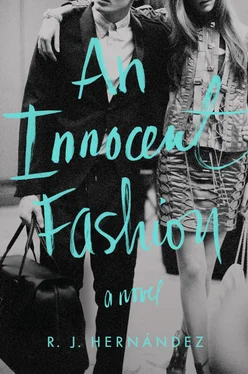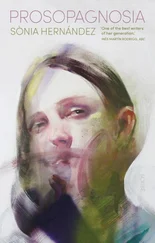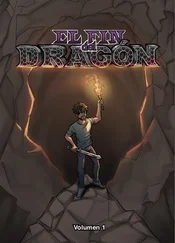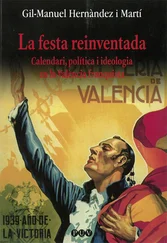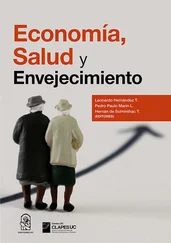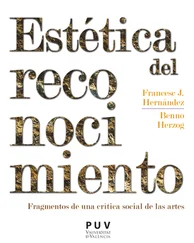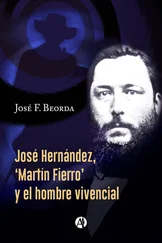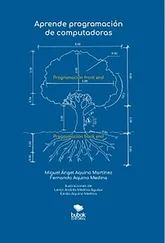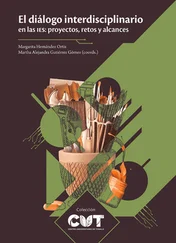At Régine , there would be none of the ugliness that I had spent my life trying to escape, first by losing myself in the pages of the magazine itself and later, as an art history major, through marble and oil paint. Here, people would all have sensitive eyes like mine. They would appreciate the beauty in life, and share my goal of making the world more beautiful.
I followed George through the glass door.

WHEN WE PULLED UP TO THE FRESHMEN GATE ON MOVE-IN day, Yale was just like I’d imagined, with its turrets and wrought ironwork and stained glass windows and—
“Are you sure this is it?” my mother gaped. “This looks like — I don’t know, a castle or something.”
“ No, mi amor, ” my father corrected, “is just el famoso Jail.” He laughed at his own joke and almost swerved into a parking meter.
Since the arrival of my crest-emblazoned acceptance letter in the mail, all interactions with my father had included some variation of this overplayed joke: When he attempted to pronounce Yale, his coarse Spanish accent produced “Jail” instead.
It was, I suppose, better for both of us than the icy curtain that had descended after his outburst against my ill-fated earring. At some point, he seemed to actually realize what that letter meant — I was leaving for college, far away, and those months would be the last time I would live with them. Furthermore, in the time he had been silently condemning me, I had been trying hard to actually accomplish something. He had no true context for the significance of “getting into college,” let alone getting into Yale; nobody he knew had ever even done that, and Corpus Christi wasn’t like any town in the Northeast, where every parent drew their child from the womb and then immediately enrolled them in college-prep exams while prodding them to acquire hobbies and passions and admissions-worthy “special skills.” Independent of him, I had done this “great” thing, and — most crushing to the pride he took in being the family breadwinner — he was no longer needed to provide for me. Yale was paying for everything. As a mixed-race boy from a small town, with SAT scores and accomplishments to rival anyone who had attended Hotchkiss or Horace Mann, my application was an easy case for a diversity-craving admissions panel.
“You excited, cabrón ?” he had started asking me at dinnertime, reeling me into one of his sweaty embraces. “I hear dey have good food over der in Jail!”
Now my father said, “ Mira los prisoners!” I didn’t hear him through the wind coursing around my ears. Like a child, I had unbuckled in the backseat and thrust my head out of the window, an uncontrollable grin spreading over my face. I was dressed in a navy double-breasted suit, with an orchid pinned to my lapel, ready to introduce myself to the next four years of my life. The New Haven air cooled my cheeks, coursed through my hair, sent my silky open collar flapping around my neck.
“Welcome! Welcome!” yelled face-painted upperclassmen, herding awestruck tenderfoots to their residential dorms. “If you’re in Calhoun dorm, come with me! Branford, come with me! Davenport! Pierson! Berkeley!”
I couldn’t breathe. I was like an orphan who had been disappointed on every Christmas morning of his life, only to be confronted this year by a mountain of presents grander than he’d ever dreamed of.
All around, there were people just like me — odd ones, outsiders. A black father, photographing Wife and Daughter’s first tread through the hallowed gate; an Asian girl, calling for her dad to help unload an armchair. One Indian family consisted of at least twelve well-wishers in tunics and saris, crying and clasping their hands together. The beneficiary of their profuse affection was a ponytailed girl in a Yale cable-knit sweater who beamed visibly with relief, like a crab who had outgrown her shell and was finally clattering toward a roomier arrangement.
There were all the white families too. Mostly New Englanders, all of them cut out of some preppy catalogue, the mothers with their pearls and their headbands and the sleeves of their dainty sweaters tied over polo shirts; the fathers with monogrammed dress shirts tucked neatly into pleated khakis; a coordinated mélange of summertime colors — pink and tangerine and azure blue — like a fete of colorful umbrellas gathered on a beach in Nantucket. These were the “old money” families, from a class I had never known — families with stock portfolios and black cards and sprawling legacies of personal worth, with memberships at golf clubs and an ancestral claim to passage on the Mayflower . For their progeny, today was a preordained rite of passage, the culmination of a lifelong debate over whether they would choose Yale like Daddy, or Princeton like Mother, or maybe pull a radical stunt and end up at Harvard in the footsteps of loony, lovable Uncle Charlie.
Once we had parked, my father couldn’t get enough of them. “ ¡Mira estos locos! ” he exclaimed, drunk with bewilderment, and my mother had to scold him for pointing openly at all the white people. Having never traveled beyond Texas or New Mexico, she seemed frightened by all the banners and turrets. She held on to my father’s arm in a daze, while I ran ahead of them into the swarming courtyard.
I could scarcely tell what was happening. From the car to my dorm was a blur of green lawns — I couldn’t believe how green! — but somehow I knew exactly where to go, and when I arrived at the dorm entryway, the door was vaulted and the stairway was stone and the windows leading up the tower (yes, tower! ) were stained glass, and I realized this wasn’t just a dream, but that every day, from this day forward, I would pass through that vaulted door, and climb that stone stairway, and pass those stained glass windows, and when I got to the top there would be a door— my door — and inside would be my room, full of my things, and my beautiful new life.
I was jostled by faces moving up and down the stairs, shouting, “ Hello! Hiya! How’s it going! What’s your name! Where are you from! ” every voice an affirmation of community, of friendship, of you and me and us together, every moment a handshake and a set of white teeth and a new friend, exclaiming, “ I’m Charlotte! I’m Nick! I’m Fatima! James! Cecilie! Francisco! Jessica! ” like hands raised in the air in a collective declaration: We’re here! We did it! We’re together now, and we will never be sad or alone or unhappy again!
Amid the faces were the things getting dragged, exchanging hands, or going clonk! clonk! clonk! on the steps — a lamp and a bookshelf and some pillows and an armchair and another lamp and more pillows and a box full of books and a picnic basket and an ironing board and a cage with a parakeet squawking, “Mildred! Mildred!”—all of things we brought to make this place belong to us.
The transport of my own belongings to my dorm suite was a process quite unseen by me. One moment I had flung open the door to an empty common room, greeted by the sight of a stone fireplace; the next, my parents had appeared with my suitcases and my rolled-up art posters and my potted calla lily, which was already swaying on the mantle.
“What do you think of this here?” my mom asked, holding up to the mahogany-paneled wall my poster of John Singer Sargent’s Portrait of Madame X . I didn’t look up, but ran to the bathroom and dementedly proceeded to test the faucets — open and close — thinking, My water! My sink! My bathroom! as the water guzzled out in abundance.
Читать дальше
